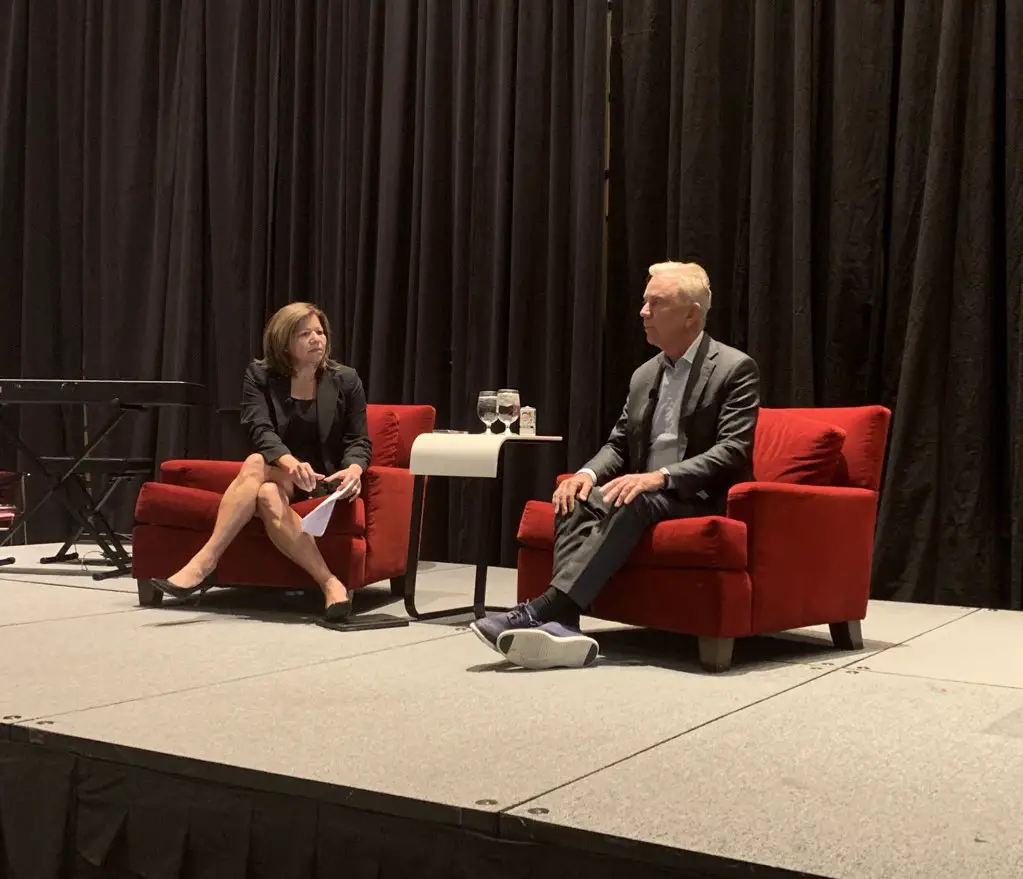Lamont: Housing ‘remains a top priority for our administration’

Connecticut housing experts and industry and government leaders gathered on Nov. 2 at Hartford’s Connecticut Convention Center for the inaugural “Reimagining Housing in Connecticut Conference,” organized by the state’s Department of Housing (DOH) and the Connecticut Housing Finance Authority (CHFA).
The center focus of the event was a “fireside chat” between Gov. Ned Lamont and DOH Commissioner Sella Mosquera-Bruno. The governor identified housing as “the most important thing we do for the next three years” and declared that “housing remains a top priority for our administration because it is a key component needed to grow good-paying jobs, ensure businesses have the workforce necessary to fill in-demand positions, incentivize young people to stay in Connecticut, and support our overall economy.”
Yet the governor lamented that businesses will not come into Connecticut “if there’s not a place for people to live.” He also acknowledged social problems that impact the housing market, adding, “In the midst of this prosperity, this growth, in the midst of this economic opportunity, homelessness and addiction are still afflicting us in a serious way.”
“When we have challenges with the homeless population, we don’t want to continue just creating shelters,” said Mosquera-Bruno. “We want to provide housing. That’s not a Band-Aid, that’s the best solution: when we have permanent housing and affordable housing.”
“We have extraordinary prosperity in this state, but we also have some severe pockets of poverty and one of the biggest wealth gaps in the country,” Lamont continued. “And we are doing everything we can to bridge that divide, but I think there’s nothing more important in terms of building wealth than home ownership.”
Lamont stressed the value of programs including the CHFA’s Time to Own program, which allows first-time home buyers to afford down payments with a forgivable loan up to $50,000, as helping more people build equity and wealth. Mosquera-Bruno announced a new state initiative called the Health and Housing Innovation Grant to focus on affordable housing development – but Lamont admitted not every community was eager for such projects.
“I’d say there’s some pushback on housing,” he said. “Let’s face it, there’s a lot of ‘I like housing, but not here.’”
Mosquera-Bruno agreed that a central aspect of the DOH’s work is involves making residents aware of existing programs and resources.
“A specific idea that we have in this work is to connect people, connect developers with service providers,” said Mosquera-Bruno. “We want to build this relationship, this connection, because we are many times disconnected. We’re trying to make sure that that networking happens.”
Also addressing the event was Sipho Simela, founder and CEO of Stamford-based Matrix Rental Solutions, who highlighted his company’s focus on Connecticut’s housing needs.
“Matrix is the first universal application built to streamline the rental application process,” Simela said. “We first looked at some of the barriers of entry within the residential rental application process. The first was credit scoring. Credit scoring is inherently biased, particularly towards minorities, immigrants, and even younger people who have a long-term credit issue. It doesn’t tell the full story of who a person is.”
Noting that gig economy jobs often create difficulty for many workers needing to provide proof of income, Simela said many of these issues can be overcome while streamlining the process and getting rid of application fees that consume the time of everybody involved in renting a property. Even if a good tenant is found, he added, the average wait time for all approvals and checks to be completed is 36 business days.
“We need to not only create housing, but we also need to further utilize what’s already allocated by making a simpler, faster process,” Simela said. “We believe we’re going to help people get there, so here’s what we’re doing: we are launching a pilot in five cities alongside our friends at the DOH to see if we can get more residents into homes faster. What we’re most excited about here at Matrix is the fact we have the opportunity to tell everyone in this room here first that we are doing something that we believe is going to change the industry.”
Phil Hall contributed to this article.